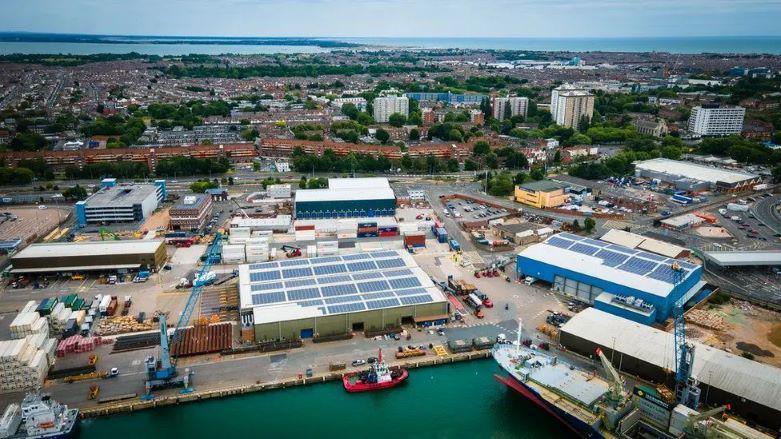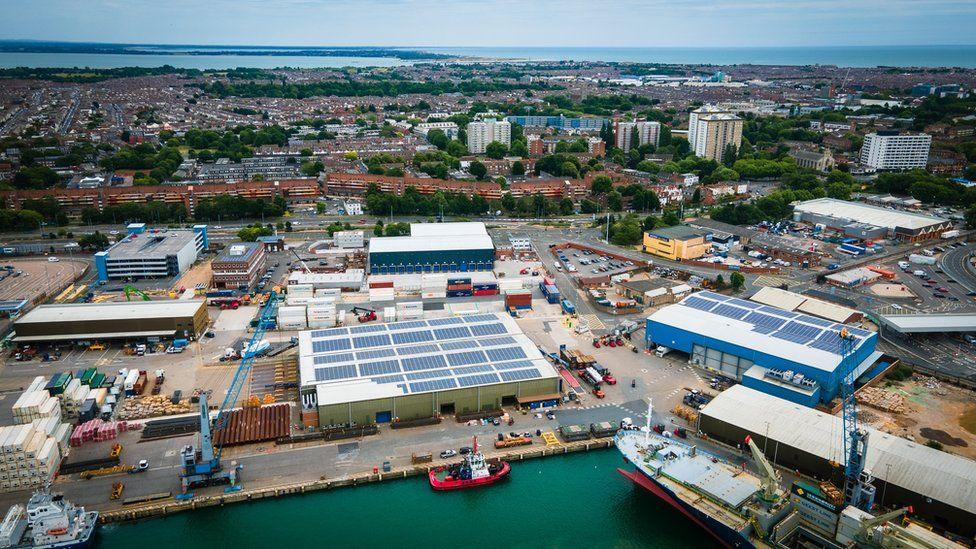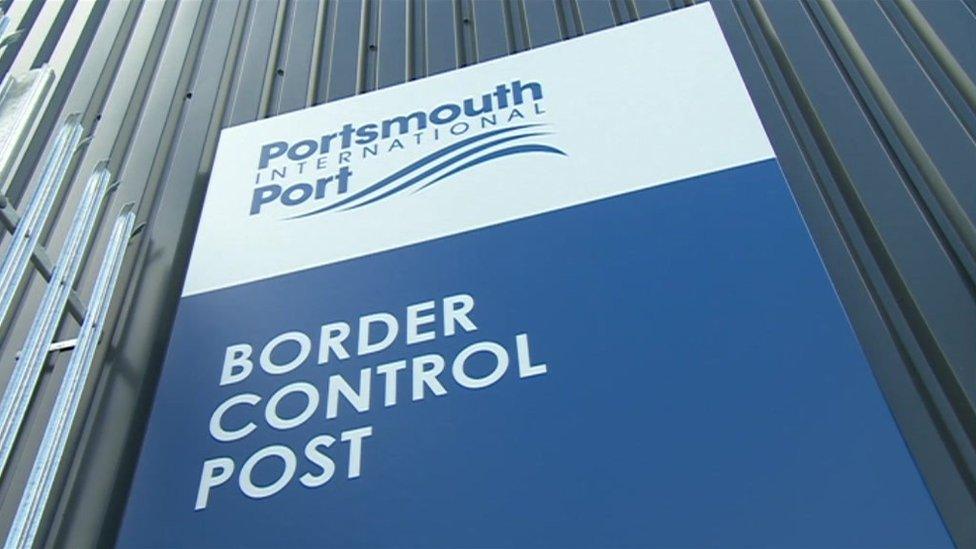City's £23m border control post may need to be demolished

The simplified approach to checks has been welcomed by port authorities
- Published
Council leaders have said they could be forced to get rid of a multimillion-pound border control post which looks set to become "obsolete".
Portsmouth International Port's checking station could become redundant under the UK's new trade deal with the EU which scraps most checks on food, animal products and agricultural goods.
The simplified approach has been welcomed by port authorities but it has called into question the future of post-Brexit border infrastructure.
The leader of Portsmouth City Council, Steve Pitt, said the local authority might have to consider demolishing the facility, which was built three years ago under the previous Conservative government, if inspections ceased.
He added: "After five turbulent years of uncertainty, we welcome the news that food and animal imports, and border checks, could be simplified.
"As a major port anything that avoids delays is always welcomed."
Portsmouth International Port's building required a £6m contribution from the city council.
A further £17m for the "highly specialist, bespoke facility" was covered by central government, bringing the total cost to £23m.
"We have repeatedly asked for a clear direction on the future of the border control posts, ours is a significant piece of infrastructure that takes up two acres of operational land and has meant a loss of commercial opportunity for the port," Mr Pitt said.
Safety and security checks started at the site last year, two years after it was built, but much of the facility has remained unused.
Mr Pitt said the local authority had hoped to recoup some of the costs of the council-owned facility through charging for goods to be inspected.
"If the border control post is no longer in use we will be looking for compensation from government to recover the shortfall," he said.
He added that the council was concerned about the staff in port health but would ensure all changes take place in consultation with them.
'White elephant'
Liberal Democrat Councillor Gerald Vernon-Jackson said while the control post was painted black "it is a white elephant".
British Ports Association (BPA) is leading calls for compensation for ports to cover the cost of infrastructure they were forced to build under the previous post-Brexit agreement.
The industry had invested more than £100m in border control posts but the government had not undertaken border checks at the expected level, the association said.
Richard Ballantyne, chief executive of BPA, welcomed the new agreement, which he said would lower barriers to trade.
However, on border control posts Mr Ballantyne said: "This agreement means that many new border control posts that were built at a cost of over £120m to industry to manage checks that never fully materialised are now likely to become obsolete.
"Government should cover the full costs of these white elephants and put this episode behind us."
A government spokesperson said: "This government committed in its manifesto to negotiate an agreement to prevent unnecessary border checks, remove red tape for businesses and help tackle the cost of food, which is what we have delivered on."
Get in touch
Do you have a story BBC Hampshire & Isle of Wight should cover?
You can follow BBC Hampshire & Isle of Wight on Facebook, external, X (Twitter), external, or Instagram, external.
- Published29 June 2023

- Published5 July 2022
